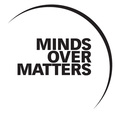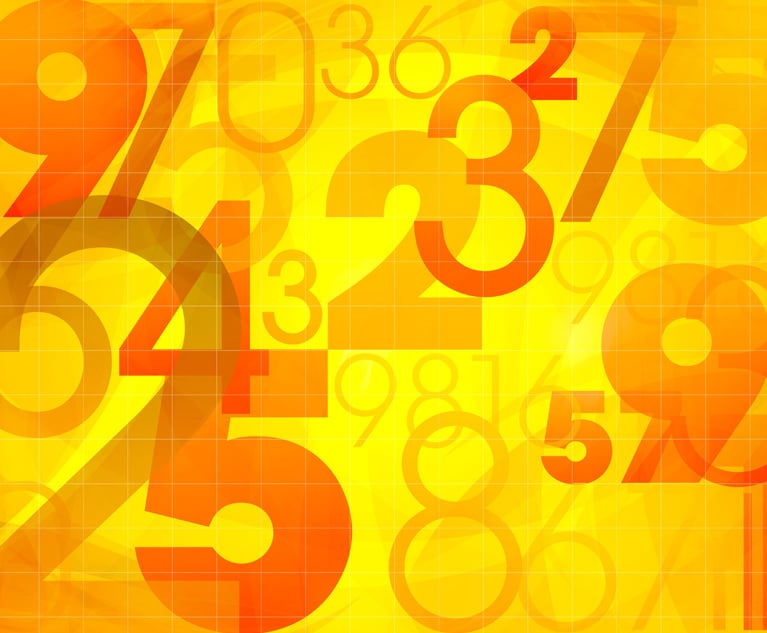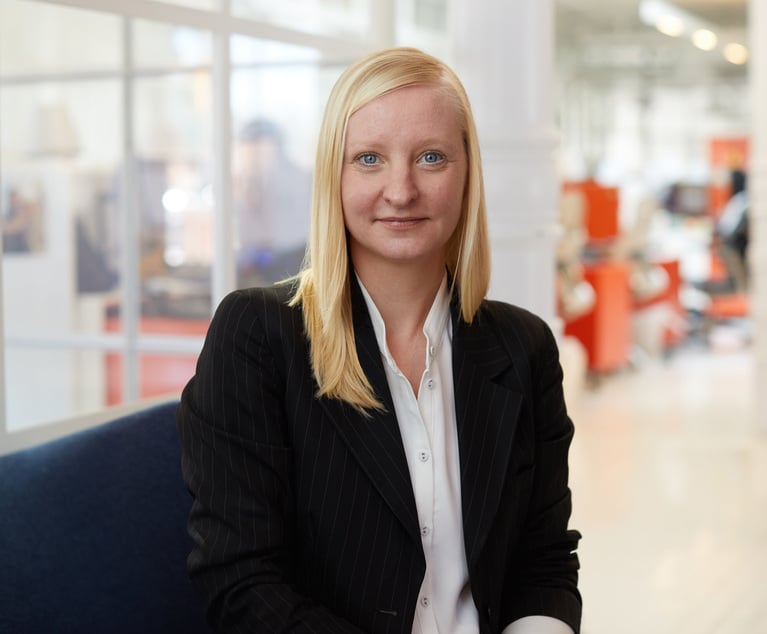Addressing Mental Health Means Removing All Your Masks
"I still fall into wearing a mask now and then, but I have better tools to recognize it and center my true self," Brian Cuban writes.
September 03, 2019 at 12:19 PM
6 minute read
 Credit: Zenzen/Shutterstock.com
Credit: Zenzen/Shutterstock.com
 A few years ago, I ordered the records from my 2005 trip to a Dallas psychiatric facility, after a near suicide attempt. I was dragged there by my two brothers, kicking and screaming right into the admitting lobby. Obtaining mental health records is not something I endorse or recommend for anyone else. It was simply something I felt I needed to do for a better understanding of my journey. I had very little recall of sitting in that room with the attending physician, the psychiatric nurse and my two brothers.
A few years ago, I ordered the records from my 2005 trip to a Dallas psychiatric facility, after a near suicide attempt. I was dragged there by my two brothers, kicking and screaming right into the admitting lobby. Obtaining mental health records is not something I endorse or recommend for anyone else. It was simply something I felt I needed to do for a better understanding of my journey. I had very little recall of sitting in that room with the attending physician, the psychiatric nurse and my two brothers.
The notes were revealing. Most of the time was spent screaming at my older brother, Mark, blaming his success for my perceived failures in life.
Of course, there is nothing further from the truth. One of the primary reasons I am alive today is because of his support and the support of my other sibling. My drug and alcohol issues also started long before his rise to fame. However, sitting in that dark room, still somewhat under the influence, none of it mattered. I was Fredo Corleone, and Mark was Michael. I was the shameful black sheep, looking for people to blame. Those who loved me most where easy targets.
In the years since, I have taken a hard look at those feelings and words. The problem was not my siblings. I was experiencing my own form of imposter syndrome. I had gone most of my life with no sense of self-worth, and rather than being comfortable in my own skin as a shy middle child who cries watching movie trailers or to a single note of music, I had to be my brother. Of course, I could not be him so I would fill the void of self-esteem and self-identity another way. I would become "Mark Cuban's brother." I would embrace what I call "name fame." That would be my identity and self-worth. I would become an imposter. A mask that would get me what mattered most: love and acceptance, albeit based on lies and the use of drugs and alcohol. How those lies piled up! An imposter house of cards just waiting to collapse. They always do. It's just a matter of when.
For a while, embracing name Fame seemed great. People asked for my autograph. I would tell people I was part owner of the Dallas Mavericks. I walked into clubs without waiting. Other drug users gave me free cocaine. People bought me drinks. I had relationships with women half my age, wrapped around drugs and partying. I was a 44-year-old teenager finally getting in his mind what that young kid felt he never could. But, of course, every time I looked in the mirror after the cocaine and booze wore off, I still saw the ugliness inside. Wash. Rinse. Repeat.
It was not just the party scene. I lost all sense of accountability to my professional self and law clients. I stopped caring about my respected lawyer mask. I showed up to court hung over or still under the influence. I did cocaine in the courthouse bathroom. Eventually, I had no clients. My brother put me to work for him, entrusting me as his point person for the construction of the soon-to-be-opened American Airlines Center, which would be the new home of the Mavericks, and in which Mark had an equity interest.
My responsibilities entailed sitting in on construction meetings, taking notes, and reporting back to Mark with anything I thought he should know. It was a high-profile position sitting in with high-profile people also involved in the construction of the new arena.
It was important work that should have pushed me to excel and open up new doors to my professional future. Unfortunately, as often happens when addiction meets work life, my level of competence and caring was limited, causing me to work up to only my very low expectations and not worry about anyone else's.
I'd often show up hungover after partying all night. Sometimes I was still a little tipsy. More than a few times, I had not showered in days and smelled like a cologne factory. There were very few days when I offered anything to the process other than body odor and booze vapors coming from my corner of the conference table. Needless to say, I was soon no longer a part of those meetings, falling deeper and deeper into an abyss of addiction and shame. I no longer had any imposter masks that worked in a professional setting.
In the nightlife setting, they still worked, so it made sense just to do that and continue to embrace the name fame to generate the illusory and artificial self-respect I had searched for my entire life. As long as I still had places to wear that mask, I had no need to confront my mental health problems and seek help.
When I went into recovery in 2007, the process of dealing with my true self was just as difficult as my abstinence pathway for alcohol and cocaine. It involved figuring out who the real Brian was. Stripping down to that shy little boy who wanted to be loved so badly but only saw someone unlovable in the mirror. That was the real Brian. As recovery and therapy went on, I rebuilt a sense of self. Brick by brick. Painful self-discovery by self-discovery. It's an ongoing process. I still fall into wearing a mask now and then, but I have better tools to recognize it and center my true self before it turns into a body suit.
In this way, I understand attorneys who risk so much out of fear of the damage, admitting mental health issues might do to their reputations. Of course, it's irrational; we're all much more likely to wreck our lives by allowing the problems to progress, rather than dealing with them at the earliest possible touch-point. The hardest conversation I have with struggling lawyers is to step outside the imposter long enough to take a first step. The high-functioning imposter. The "I'm everyone's confidant so I can't have problems" imposter. The masks are many. The road stays the same.
Even though I did not understand it at the time, I am glad I had those around me who knew that recovery for me was more than alcohol and cocaine abstinence. It was about a little boy. An imposter. It was about stripping off the mask and rebuilding. It wasn't easy, but for me, it was worth it.
Read more – Minds Over Matters: An Examination of Mental Health in the Legal Profession
Brian Cuban is a Dallas-based attorney, author and addiction recovery advocate. He also is a member of the advisory board for Law.com's Minds Over Matters editorial project.
This content has been archived. It is available through our partners, LexisNexis® and Bloomberg Law.
To view this content, please continue to their sites.
Not a Lexis Subscriber?
Subscribe Now
Not a Bloomberg Law Subscriber?
Subscribe Now
NOT FOR REPRINT
© 2025 ALM Global, LLC, All Rights Reserved. Request academic re-use from www.copyright.com. All other uses, submit a request to [email protected]. For more information visit Asset & Logo Licensing.
You Might Like
View All
The Week in Data Jan. 21: A Look at Legal Industry Trends by the Numbers

The Right Amount?: Federal Judge Weighs $1.8M Attorney Fee Request with Strip Club's $15K Award

Avoiding the Great Gen AI Wrecking Ball: Ignore AI’s Transformative Power at Your Own Risk
6 minute readTrending Stories
- 1Departing Attorneys Sue Their Former Law Firm
- 2Pa. High Court: Concrete Proof Not Needed to Weigh Grounds for Preliminary Injunction Order
- 3'Something Else Is Coming': DOGE Established, but With Limited Scope
- 4Polsinelli Picks Up Corporate Health Care Partner From Greenberg Traurig in LA
- 5Kirkland Lands in Phila., but Rate Pressure May Limit the High-Flying Firm's Growth Prospects
Who Got The Work
J. Brugh Lower of Gibbons has entered an appearance for industrial equipment supplier Devco Corporation in a pending trademark infringement lawsuit. The suit, accusing the defendant of selling knock-off Graco products, was filed Dec. 18 in New Jersey District Court by Rivkin Radler on behalf of Graco Inc. and Graco Minnesota. The case, assigned to U.S. District Judge Zahid N. Quraishi, is 3:24-cv-11294, Graco Inc. et al v. Devco Corporation.
Who Got The Work
Rebecca Maller-Stein and Kent A. Yalowitz of Arnold & Porter Kaye Scholer have entered their appearances for Hanaco Venture Capital and its executives, Lior Prosor and David Frankel, in a pending securities lawsuit. The action, filed on Dec. 24 in New York Southern District Court by Zell, Aron & Co. on behalf of Goldeneye Advisors, accuses the defendants of negligently and fraudulently managing the plaintiff's $1 million investment. The case, assigned to U.S. District Judge Vernon S. Broderick, is 1:24-cv-09918, Goldeneye Advisors, LLC v. Hanaco Venture Capital, Ltd. et al.
Who Got The Work
Attorneys from A&O Shearman has stepped in as defense counsel for Toronto-Dominion Bank and other defendants in a pending securities class action. The suit, filed Dec. 11 in New York Southern District Court by Bleichmar Fonti & Auld, accuses the defendants of concealing the bank's 'pervasive' deficiencies in regards to its compliance with the Bank Secrecy Act and the quality of its anti-money laundering controls. The case, assigned to U.S. District Judge Arun Subramanian, is 1:24-cv-09445, Gonzalez v. The Toronto-Dominion Bank et al.
Who Got The Work
Crown Castle International, a Pennsylvania company providing shared communications infrastructure, has turned to Luke D. Wolf of Gordon Rees Scully Mansukhani to fend off a pending breach-of-contract lawsuit. The court action, filed Nov. 25 in Michigan Eastern District Court by Hooper Hathaway PC on behalf of The Town Residences LLC, accuses Crown Castle of failing to transfer approximately $30,000 in utility payments from T-Mobile in breach of a roof-top lease and assignment agreement. The case, assigned to U.S. District Judge Susan K. Declercq, is 2:24-cv-13131, The Town Residences LLC v. T-Mobile US, Inc. et al.
Who Got The Work
Wilfred P. Coronato and Daniel M. Schwartz of McCarter & English have stepped in as defense counsel to Electrolux Home Products Inc. in a pending product liability lawsuit. The court action, filed Nov. 26 in New York Eastern District Court by Poulos Lopiccolo PC and Nagel Rice LLP on behalf of David Stern, alleges that the defendant's refrigerators’ drawers and shelving repeatedly break and fall apart within months after purchase. The case, assigned to U.S. District Judge Joan M. Azrack, is 2:24-cv-08204, Stern v. Electrolux Home Products, Inc.
Featured Firms
Law Offices of Gary Martin Hays & Associates, P.C.
(470) 294-1674
Law Offices of Mark E. Salomone
(857) 444-6468
Smith & Hassler
(713) 739-1250









